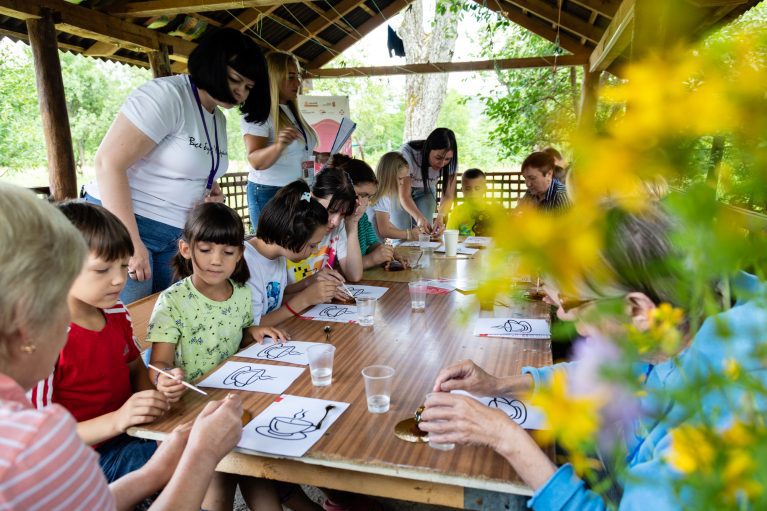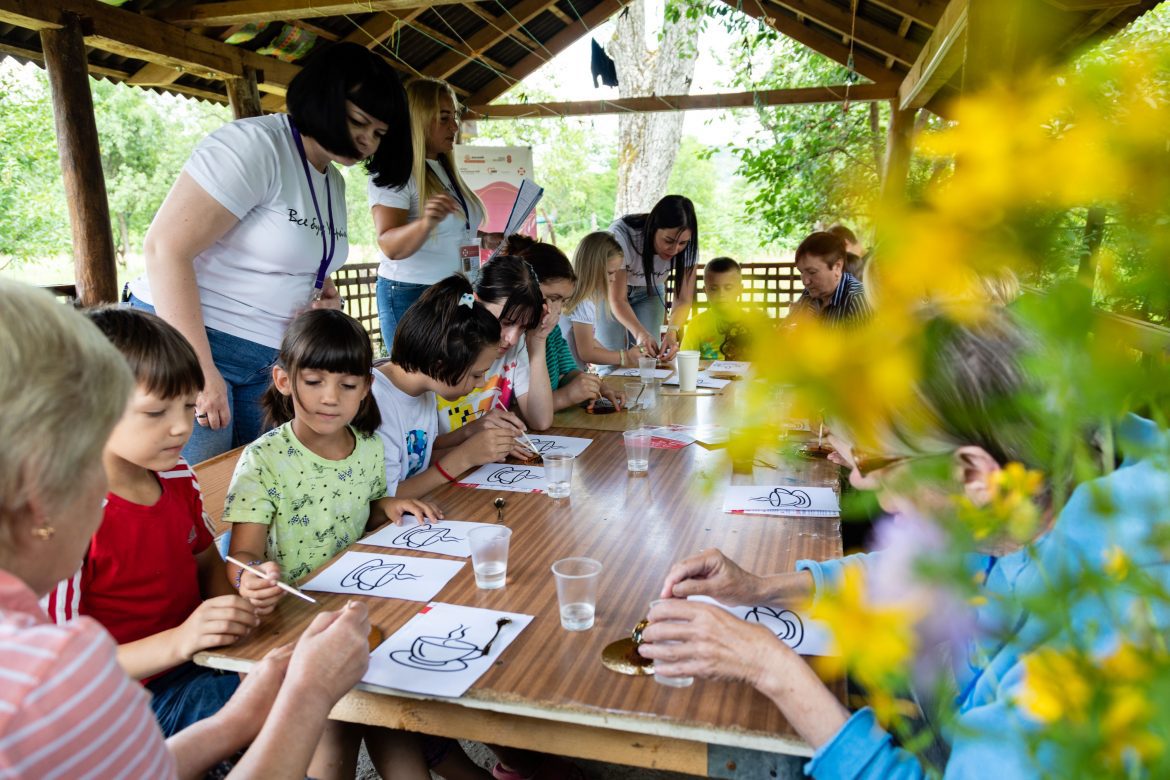Solidar Suisse
in Ukraine
Post information
Author
Solidar Suisse · 0 comments
Share post
The Russian invasion of Ukraine has left devastation, violence and traumatised people in its wake. As a traditional humanitarian organisation, Solidar Suisse is now dedicated to working in the war-torn country. With two local partner organisations, we are helping to strengthen the resilience of the most vulnerable people in Ukraine.
Since 24 February 2022, Ukraine has been under attack by Russia, resulting in an immense humanitarian crisis. Cities have been bombed, livelihoods destroyed and fighting continues with no end in sight. The conflict has triggered the world’s fastest-growing displacement crisis since World War II. More than a quarter of Ukraine’s population has fled their homes: an estimated 5.4 million people are now internally displaced, mostly in western, central and eastern Ukraine, while 8 million have left the country. It must be assumed that the humanitarian emergency will continue for many months and reconstruction will take years.
The scars of war
Witnesses to the war have been left with visible and invisible scars. Psychological and physical violence as well as abuse have increased considerably. Most of those affected are severely traumatised by what they have experienced. 64 per cent of the displaced are women, many of whom have left behind their husbands and other family members. There are reports of many forms of violence against women, with insecurity and risk particularly high for women and girls fleeing – at border crossings, in collective shelters and in bomb shelters. There are reports of violence, sexual exploitation and trafficking. Sexual violence in conflict is not only a serious human rights violation, but can also have significant physical and psychological consequences, such as unwanted pregnancies, sexually transmitted diseases, infertility, as well as anxiety, depression and post-traumatic stress disorder.
While most men serve in the armed forces, women and older people now have fewer earning opportunities. As a result, they lack the means to meet their basic needs such as food, clothing, medicine or hygiene items. Conditions are worsening due to electricity, gas and water cuts, and the need for humanitarian aid is increasing. The war has also devastated Ukraine’s economy. Economic losses due to the ongoing military offensive could be in excess of one trillion dollars, with about 64 per cent of the Ukrainian workforce having lost their jobs since the war began.
Safe Space for Women and Girls
Against this backdrop, Solidar Suisse is working with the two Ukrainian organizations, VIS Women’s Organization in Vinnytsia and LAoPwD – Luhansk Association of Organizations of People with Disabilities in Kharkiv and Donetsk, to provide humanitarian support to those in need and internally displaced people in both urban and rural areas. They are comprehensively supported and empowered through psychosocial counselling. In urban areas, a Safe Space has been set up for women and girls, providing an important opportunity for them to socialise and rebuild their social networks and acquire new professional skills, and ensuring access to safe and targeted GBV services (legal, medical, psychological, psychosocial). In the safe space, they receive information on women’s issues, access to case management services and access to external services such as sexual and reproductive health care is facilitated.
Meeting basic needs
The internally displaced people in the project area came mainly from the attacked eastern and southern parts of the country as well as from the Kyiv regions. They left their homes with only a few belongings, and especially those living in collective shelters and/or remote, rural areas have hardly enough financial resources to meet their basic needs. These needs become even more urgent during the winter months and due to the destruction of basic infrastructure by the Russian attacks. Especially in the remote areas, the displaced face not only extreme hardship but also less support from the government and humanitarian organisations. Therefore, they are supported with cash payments and in-kind goods to meet basic needs. We also distributed heaters and fuel for winterisation throughout the area of operation.
Light Reconstruction
Since the start of the large-scale Russian aggression against Ukraine, the team of the partner organization LAoPwD has actively responded to the needs of the most vulnerable people, with a special focus on the needs of people with disabilities. Among other things, we are already engaged in light reconstruction efforts, such as renovation work on shelters for particularly vulnerable individuals.
More Information about our Work in Ukraine
Post information
Author
Solidar Suisse



Comments